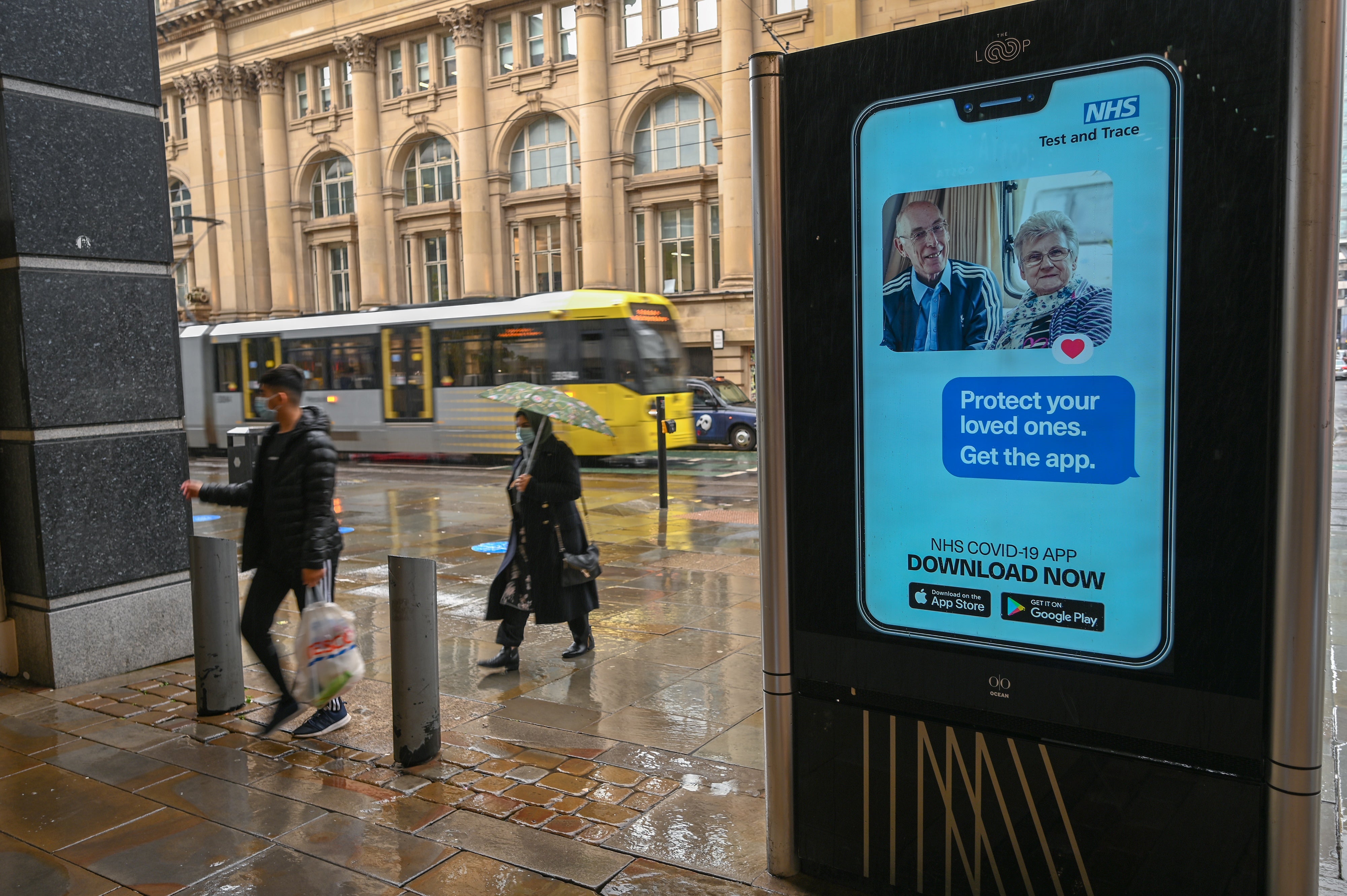NHS Covid-19 app update removes ‘ghost’ notification bug

Your support helps us to tell the story
From reproductive rights to climate change to Big Tech, The Independent is on the ground when the story is developing. Whether it's investigating the financials of Elon Musk's pro-Trump PAC or producing our latest documentary, 'The A Word', which shines a light on the American women fighting for reproductive rights, we know how important it is to parse out the facts from the messaging.
At such a critical moment in US history, we need reporters on the ground. Your donation allows us to keep sending journalists to speak to both sides of the story.
The Independent is trusted by Americans across the entire political spectrum. And unlike many other quality news outlets, we choose not to lock Americans out of our reporting and analysis with paywalls. We believe quality journalism should be available to everyone, paid for by those who can afford it.
Your support makes all the difference.The NHS Covid-19 app has finally been updated to remove “ghost" notifications.
Since it was released, the app has regularly sent users messages indicating that they have been subject to a “potential exposure", without giving full information on whether they are at risk or need to take any specific action.
The unclear notifications have inevitably led to concern among users who receive them and fear that they might need to self-isolate, or could have caught Covid-19.
“Possible Covid-19 exposure," the notification reads. "Verifying exposure info.
“The app has accessed the date, duration and signal strength of this exposure.”
While there have been a number of changes made to improve those notifications, those updates have led to frustrations of their own. A recent update added a second notification that followed almost immediately and let users know if they were safe – prompting irritation among users who felt they were being alerted unnecessarily.
Now the developers of the app say those “ghost” notifications have been removed entirely, and users will only be alerted if the app has detected that they need to take action.
The new update will also make the app better at estimating the distance between users, developers said, which in turn will allow it to more accurately decide whether a person is at risk and if they should self-isolate.
It does so by analysing the strength of the bluetooth signal between the two phones, and had been developed in collaboration with scientists from the Alan Turing Institute, developers said.
The Department of Health & Social Care also said that the app had been downloaded 19 million times, which it claimed represents “around 40 percent of eligible smartphone users”.
“The team behind the app are continually working to improve its accuracy and user experience, to make it as simple as possible to keep users and their loved ones safe," said Gaby Appleton, NHS Test and Trace Director of Product.
“We are thrilled that over 19 million people have chosen to download the app to help protect their loved ones while preserving their privacy, and that over 680,000 QR codes have been created by businesses to support digital contact tracing.
“This update builds on that success by increasing accuracy, and also removing ‘ghost’ exposure notifications, meaning users will only be notified if they need to self-isolate.
“The more people who use the app, the better it works, so I encourage all those who have not yet downloaded the app to do so.”

Join our commenting forum
Join thought-provoking conversations, follow other Independent readers and see their replies
Comments